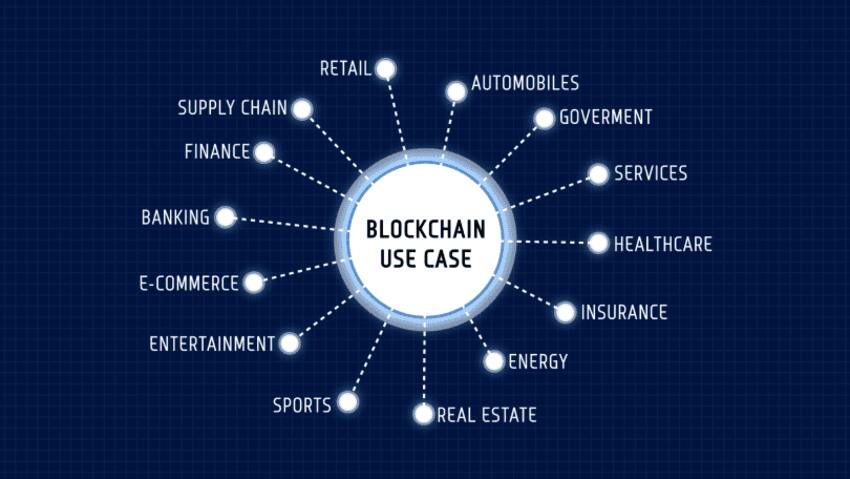Future of Blockchain Technology Prediction and Opportunities
Future of Block chain Technology: Prediction and Opportunities

The future of Blockchain Technology is revolutionizing the way industries operate, providing a secure, transparent, and decentralized method for recording transactions. Originally developed for Bit coin, block chain has evolved far beyond crypto currency, offering transformative potential across various sectors.
Understanding Blockchain: A Detailed Overview
Blockchain is a distributed ledger technology that records transactions across multiple computers, ensuring that the recorded information cannot be altered retroactively. The future of Blockchain Technology consists of three main components: blocks, nodes, and miners.
- Blocks: Each block contains a list of transactions.
- Nodes: Nodes are individual computers within the blockchain network that maintain copies of the blockchain and validate new transactions.
How the Future of Blockchain Technology Works

The process begins when a transaction is initiated. This transaction is then transmitted to a network of peer-to-peer computers known as nodes. The network of nodes validates the transaction using algorithms. This new block is then added to the existing blockchain in a way that is permanent and unalterable.
Key Features of Blockchain
Decentralization
This decentralization enhances security and transparency, reducing the risk of data manipulation and fraud.
Transparency and Immutability
Blockchain ensures that all transactions are transparent and can be traced back to their origin. Once recorded, data cannot be altered without altering all subsequent blocks, making it immutable.
Security
Each block contains a unique hash and the hash of the previous block, creating a chain of blocks that is extremely difficult to tamper with.
Applications Future of the CryptoCurrency NFT Blockchain Technology

Financial Services Future of Blockchain Technology
Blockchain is transforming the financial sector by providing faster, cheaper, and more secure transactions. It eliminates the need for intermediaries, reducing transaction costs and increasing efficiency.
Supply Chain Management
Blockchain enhances transparency and efficiency in supply chains by providing a real-time, immutable record of transactions. This technology helps track products from origin to consumer, ensuring authenticity and reducing fraud. Future of Blockchain Technology Major companies are adopting blockchain to streamline their supply chains and enhance trust with customers.
Healthcare
In the healthcare sector, blockchain is improving patient data management and security. By creating a decentralized and secure ledger of patient records, blockchain ensures that data is accessible only to authorized parties. This reduces errors, enhances privacy, and improves patient care.
Real Estate Future of Blockchain Technology
Blockchain simplifies real estate transactions by reducing paperwork, lowering costs, and increasing transparency. Smart contracts facilitate the automatic execution of agreements, reducing the need for intermediaries and speeding up the transaction process.
Voting Systems Future of Blockchain Technology
Blockchain offers a secure and transparent method for voting, reducing the risk of fraud and ensuring accurate results. By providing an immutable record of votes, blockchain enhances trust in electoral processes.
Challenges and Future Prospects of Blockchain
Scalability
One of the main challenges facing blockchain technology is scalability. As the number of transactions increases, the network can become congested, leading to slower transaction times and higher costs. Researchers are exploring various solutions, such as sharing and off-chain transactions, to address these issues.
Regulatory and Legal Issues Future of Blockchain Technology
The regulatory landscape for blockchain technology is still evolving. Clear and supportive regulatory frameworks are essential for the widespread adoption of blockchain.
Energy Consumption Future of Blockchain Technology
Blockchain, especially proof-of-work block chains like Bitcoin, requires significant computational power, leading to high energy consumption. Alternatives like proof-of-stake are being explored to reduce the environmental impact.
Interoperability
Interoperability between different blockchain networks is another challenge. Efforts are underway to create standards and protocols that allow different blockchains to communicate and interact seamlessly.
The Future of Blockchain Technology Industries

The future of blockchain is bright and full of potential. As the technology matures, we can expect to see even more innovative applications and widespread adoption across various sectors. Key trends to watch include:
- Integration with Iota: Blockchain can enhance the security and functionality of Internet of Things (Iota) devices by providing a decentralized and tamper-proof ledger of data exchanges.
- Decentralized Finance platforms are leveraging blockchain to offer financial services without traditional intermediaries, providing greater access to financial services for unbanked populations.
- Tokenization: The process of tokenizing assets, such as real estate or art, is gaining traction. This allows for fractional ownership and increased liquidity in previously illiquid markets.
Conclusion
Blockchain technology is a revolutionary force with the potential to transform numerous industries by enhancing security, transparency, and efficiency. Despite challenges, the ongoing development and adoption of blockchain promise a future where decentralized systems play a pivotal role in our daily lives.
Look at This Site: Guerrilla Marketing Strategies




